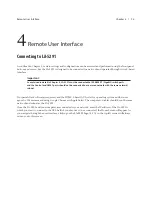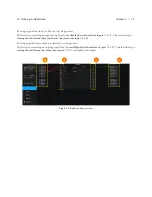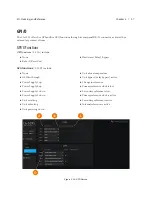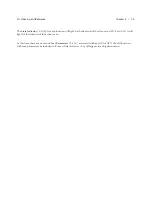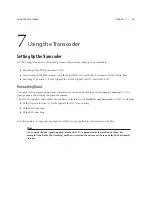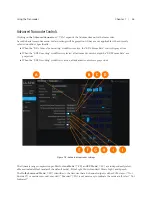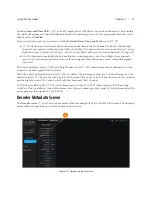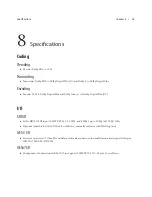
Chapter 5 |
25
I/O, Clocking, and Reference
Clock Reference
Because the LA-5291 offers very flexible signal routing and supports multiple input and output formats, having a
firm grasp of the clock sync (reference) requirements is critical.
Clock Reference Requirements
Sample Rate Converters (SRCs) are provided on both SDI inputs, the SDI 1 output, and the AES-3 input. The
AES-3 output is always synced to the active reference clock. There are no SRCs in the AES67 path.
Reference clock source options include:
♦
Internal 48kHz
♦
SDI Input
♦
AES-3 Input
♦
MADI Input (when optional MADI card is present)
♦
PTP (AES67)
When all input sources are SDI and the output of the transcoder is routed to the embedded SDI output, the
reference signal present on the SDI input
must
be used.
When using AES-3 I/O, the LA-5291 can be referenced to either the AES-3 clock (using the SRCs in the SDI path)
or to the SDI clock (using the SRCs in the AES-3 path.
When using an AES-3 source without an accompanying reference, the LA-5921’s 48kHz internal clock can be used
as the system reference if necessary, providing the SRC on the AES-3 input is enabled.
Whenever AES67 audio is used either on the input, the output, or both, the LA-5291
must
be slaved to an external-
ly-generated PTP clock as it cannot generate its own PTP reference.
Note:
The LA-5291 is set to operate in slave mode by default. There are controls in the Sync/ QoS sub-menu of the
System menu to change this should the ability to operate as a clock master be introduced in future software
versions, but only Slave Only mode is currently supported.




